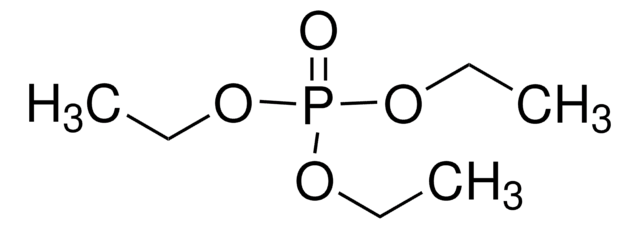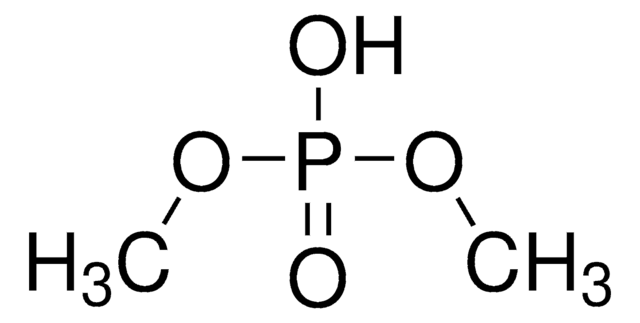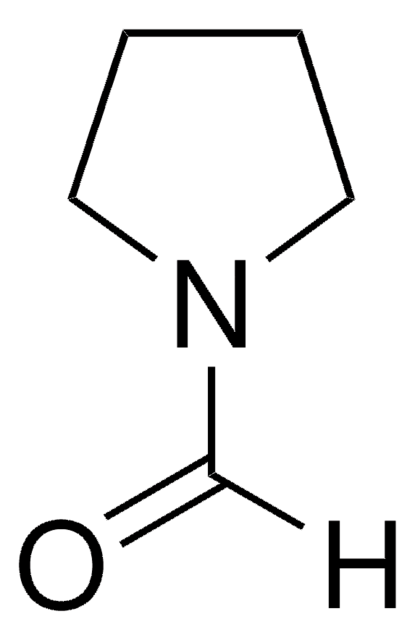8.21184
Trimethyl phosphate
for synthesis
Synonym(s):
Trimethyl phosphate
About This Item
Recommended Products
vapor pressure
1.133 hPa ( 25 °C)
Quality Level
Assay
≥98.0% (GC)
form
liquid
potency
840 mg/kg LD50, oral (Rat)
3388 mg/kg LD50, skin (Rabbit)
bp
197 °C/1013 hPa
mp
-46 °C
transition temp
flash point >150 °C
solubility
1000 g/L
density
1.21 g/cm3 at 20 °C
storage temp.
2-30°C
SMILES string
[P](=O)(OC)(OC)OC
InChI
1S/C3H9O4P/c1-5-8(4,6-2)7-3/h1-3H3
InChI key
WVLBCYQITXONBZ-UHFFFAOYSA-N
Application
- Manipulating the ionic conductivity and interfacial compatibility of polymer-in-dual-salt electrolytes: This study explores the role of trimethyl phosphate in enhancing the ionic conductivity and interfacial stability of polymer-in-dual-salt electrolytes, crucial for the development of extended-temperature quasi-solid metal batteries. The research highlights the compound′s effectiveness in improving battery performance across varying temperatures, a key consideration for next-generation energy storage solutions (Lin et al., 2024).
- Concentration levels and ecological risk assessment of typical organophosphate esters in representative surface waters of a megacity: This paper assesses the environmental impact of organophosphate esters, including trimethyl phosphate, in urban water bodies. It presents data on concentration levels and discusses the ecological risks associated with these compounds, providing essential insights for environmental protection and policy-making (Qiao et al., 2024).
- [Screening of organophosphorus flame retardant residues in rice]: Utilizing QuEChERS-gas chromatography-quadrupole time-of-flight mass spectrometry, this study identifies the presence of organophosphorus flame retardants, such as trimethyl phosphate, in rice samples. The research underscores the importance of monitoring agricultural products for chemical residues to ensure food safety (Li et al., 2023).
Analysis Note
Density (d 20 °C/ 4 °C): 1.210 - 1.215
Identity (IR): passes test
Signal Word
Danger
Hazard Statements
Precautionary Statements
Hazard Classifications
Acute Tox. 4 Oral - Carc. 2 - Eye Irrit. 2 - Muta. 1B - Skin Irrit. 2
Storage Class Code
6.1C - Combustible, acute toxic Cat.3 / toxic compounds or compounds which causing chronic effects
WGK
WGK 1
Flash Point(F)
302.0 °F - closed cup
Flash Point(C)
150 °C - closed cup
Certificates of Analysis (COA)
Search for Certificates of Analysis (COA) by entering the products Lot/Batch Number. Lot and Batch Numbers can be found on a product’s label following the words ‘Lot’ or ‘Batch’.
Already Own This Product?
Find documentation for the products that you have recently purchased in the Document Library.
Our team of scientists has experience in all areas of research including Life Science, Material Science, Chemical Synthesis, Chromatography, Analytical and many others.
Contact Technical Service








